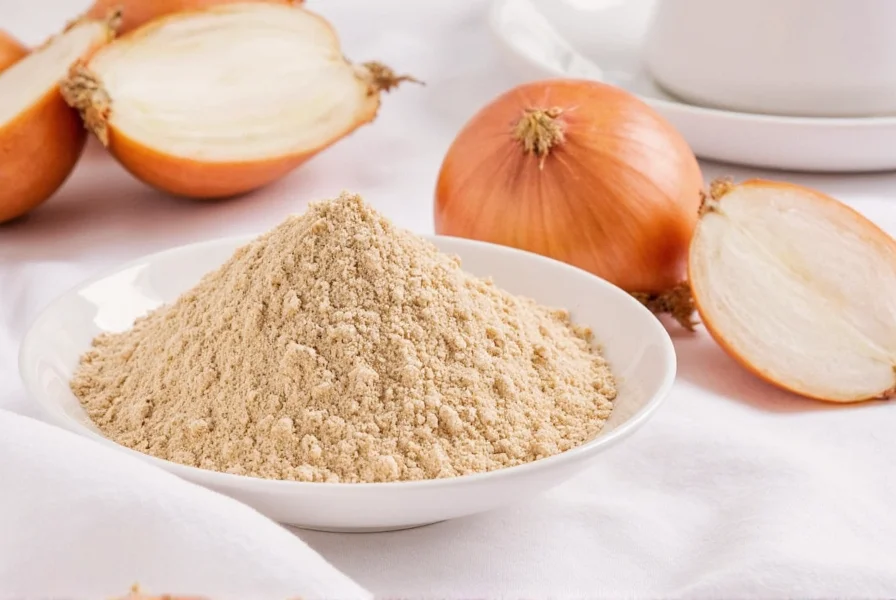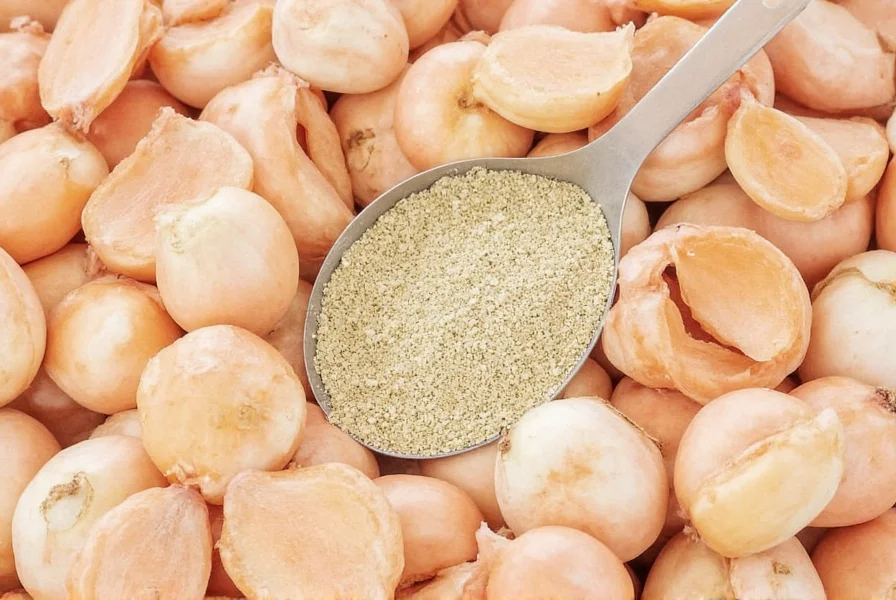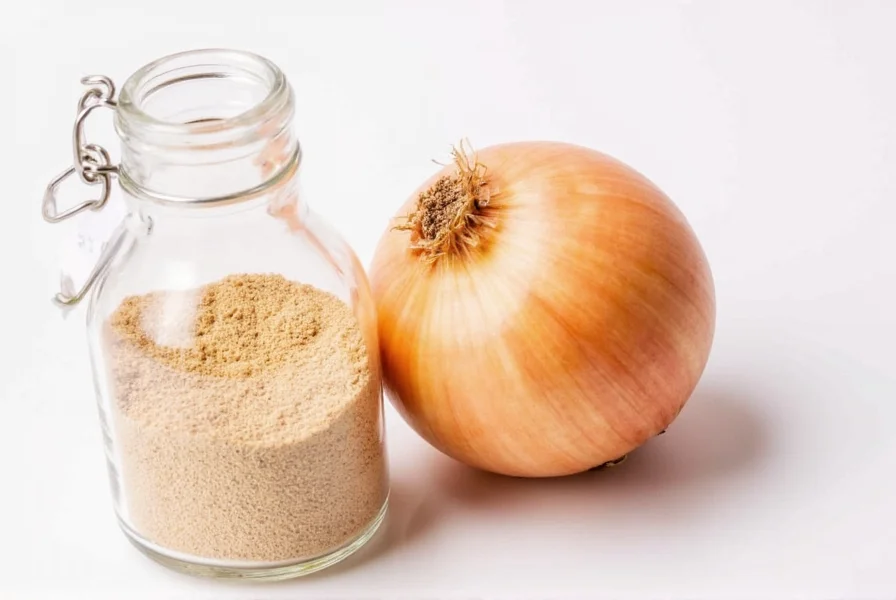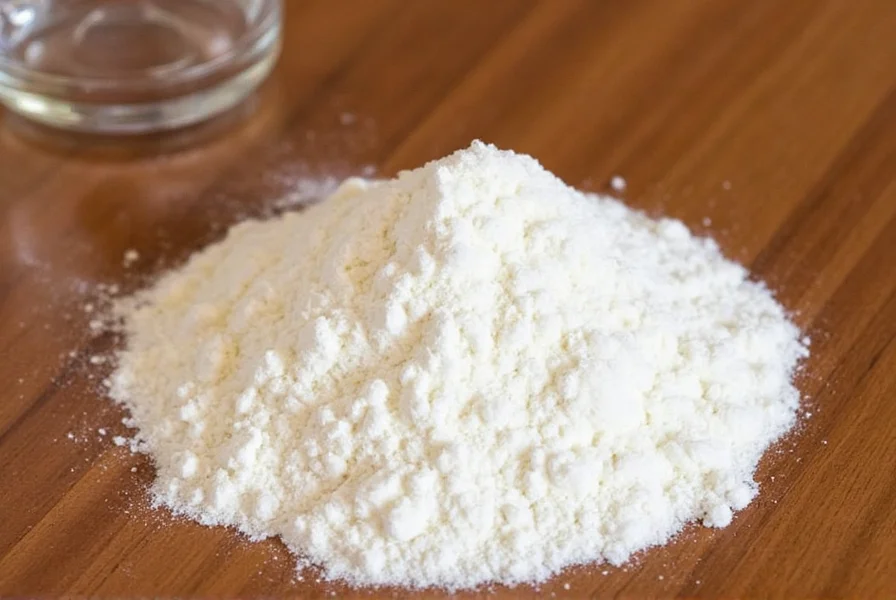When substituting onion powder for fresh onions, use 1.5 teaspoons of onion powder for one medium onion (about 1/2 cup chopped) or 1 tablespoon for every cup of chopped fresh onions. This guide covers everything you need to know about using onion powder as a convenient, long-lasting alternative to fresh onions, including exact ratios, storage tips, and when to choose powder over fresh.
Table of Contents
- Practical Tips for Using Onion Powder
- Why You Should Use Onion Powder Instead of Fresh Onions
- Proper Storage of Onion Powder for Maximum Freshness
- The Ultimate Buying Guide for Onion Powder
- Comparison Table: Onion Powder vs. Fresh Onions
- Frequently Asked Questions (FAQ)
- Conclusion: Embrace the Power of Onion Powder
Practical Tips for Using Onion Powder
Using onion powder might seem straightforward, but there are a few key tips that can make all the difference in flavor and texture. Here’s what you need to know:
- Start with a pinch: A little goes a long way. Begin with 1/4 teaspoon and adjust to taste. Overusing it can lead to a bitter or overly strong flavor.
- Mix it early: For the best results, add onion powder early in the cooking process—like when sautéing, roasting, or simmering. This allows the flavor to infuse throughout the dish.
- Use it as a seasoning booster: Sprinkle a bit over grilled meats, roasted vegetables, or even popcorn for a savory kick without the hassle of chopping.
- Substitute in recipes: When a recipe calls for diced or sliced onions, simply substitute with 1 tablespoon of onion powder for every cup of chopped onion.

Why You Should Use Onion Powder Instead of Fresh Onions
There are several reasons why onion powder is a game-changer in the kitchen, especially if you're looking for convenience and consistency:
- Long shelf life: Unlike fresh onions, which can go bad quickly, onion powder lasts for months (or even years) when stored properly. No more tossing out wilted onions!
- No mess or fuss: No peeling, slicing, or crying over the onions. Just sprinkle and go!
- Consistent flavor: Each batch of onion powder has a uniform taste, making it ideal for baking, sauces, and soups where precise flavor control matters.
- Lightweight and portable: Perfect for camping trips, road trips, or quick meals on the go. A small jar of onion powder takes up less space than a whole bag of onions.

Proper Storage of Onion Powder for Maximum Freshness
To ensure your onion powder stays potent and flavorful, follow these storage tips:
- Keep it in a cool, dark place: Exposure to heat and light can cause the powder to lose its potency. A pantry or cupboard away from direct sunlight is ideal.
- Use an airtight container: Transfer the powder to a sealed jar or container after opening. This prevents moisture and air from degrading the quality.
- Label the container: Make sure to note the date you opened the jar so you know when to replace it. Most onion powders last about 6–12 months once opened.
- Avoid humidity: Moisture can clump the powder and reduce its effectiveness. Keep it away from steamy areas like near the stove or sink.

The Ultimate Buying Guide for Onion Powder
With so many brands and varieties on the market, choosing the right onion powder can be overwhelming. Here's what to look for:
Key Features to Look For
| Product | Features | Best For |
|---|---|---|
| Mccormick Onion Powder | Fine texture, no additives, affordable | Everyday cooking, baking, and seasoning |
| Simply Organic Onion Powder | 100% organic, mild flavor | Health-conscious cooks, raw dishes, and sensitive palates |
| Frontier Co-op Onion Powder | Non-GMO, bulk options available | Chefs, home bakers, and large-scale meal prep |

Comparison Table: Onion Powder vs. Fresh Onions
To help you decide when to use onion powder versus fresh onions, here's a quick comparison:
| Factor | Onion Powder | Fresh Onions |
|---|---|---|
| Flavor Intensity | Concentrated and consistent | Varies depending on type and freshness |
| Preparation Time | Zero (just sprinkle) | Time-consuming (chopping, peeling) |
| Shelf Life | Months to years | Days to weeks |
| Texture | Smooth, fine powder | Crunchy, juicy, fibrous |
| Best For | Quick meals, baking, seasoning | Raw dishes, sautéing, roasting |
Frequently Asked Questions (FAQ)
Here are the most common questions about substituting onion powder for fresh onions:
- Q: How much onion powder equals one fresh onion?
A: Use 1.5 teaspoons of onion powder to replace one medium fresh onion (which yields about 1/2 cup chopped). For every full cup of chopped fresh onions, substitute 1 tablespoon of onion powder. - Q: Can onion powder work in raw dishes like salsa or salads?
A: It's not ideal for raw applications where fresh onion's texture and moisture are key. Onion powder dissolves completely and lacks the crisp bite of raw onions—best reserved for cooked dishes. - Q: Why does my recipe taste bitter after adding onion powder?
A: Overuse causes bitterness. Onion powder is highly concentrated—start with 1/4 teaspoon per serving and adjust gradually. Never exceed 1 tablespoon per cup of liquid in sauces or soups. - Q: Does onion powder have the same health benefits as fresh onions?
A: Yes, most antioxidants and minerals remain intact during dehydration. However, vitamin C content decreases slightly. Both forms offer anti-inflammatory benefits. - Q: How can I fix a dish that's too oniony from powder?
A: Balance with acidity (lemon juice or vinegar), sweetness (a pinch of sugar), or dairy (yogurt or cream). Diluting with extra ingredients also helps reduce intensity. - Q: Is onion powder suitable for keto or low-sodium diets?
A: Absolutely—it's naturally low-carb and sodium-free. Check labels to avoid brands with added salt, especially if managing sodium intake.
Conclusion: Embrace the Power of Onion Powder
In today's fast-paced world, convenience and consistency are king. That’s where onion powder shines. With its ability to replace onion in almost any recipe, it’s a versatile and reliable tool in the kitchen. Whether you’re short on time, running low on fresh onions, or just looking for a more efficient way to season your food, onion powder is the answer.
So next time you’re reaching for a fresh onion, think twice. Give onion powder a try and discover a new level of flavor and ease in your cooking. It might just become your favorite spice—and who knows, maybe even your new kitchen hero.











 浙公网安备
33010002000092号
浙公网安备
33010002000092号 浙B2-20120091-4
浙B2-20120091-4